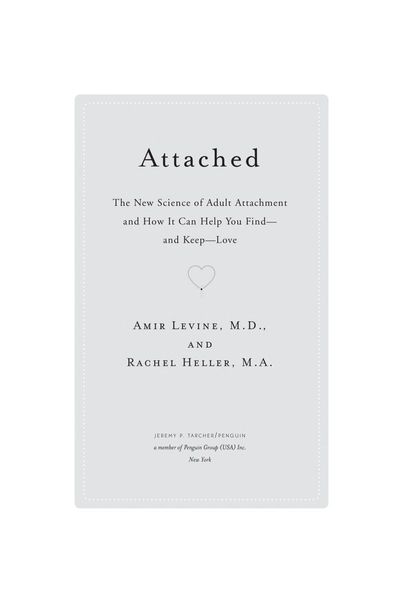
Attached The New Science of Adult Attachment and how it Can Help You Find - and Keep - Love
Introduces the theory of adult attachment as an advanced relationship science that can enable individuals to find and sustain love, offering insight into the roles of genetics and early family life in how people approach relationships.
Reviews
Robin Collura@robin_collura
mo@mofinegan
Laura Layden@godsserendipity
Kyler Phillips@kyler
Jemima Youard@jimbonimbo
Bouke van der Bijl@bouk
Nina Alexandra Bacrau@nina05
Abiiii@mystic_blob
alina s@asupernova
Keila Rico @keilaa
Alyssia Young@alyssia
Capucine Fachot@capucine
Irina @irinalit
Maggie Delano@maggiedelano
Nicole@sanktazoya
Roos Havinga@rhvga
Annie Millman@anniemillman
Leila Jade@fennec01
Amb@amberariel
nine@ninesread
Rachel Cheng@ahraycho
Nicole Elora@nicoleelora
agi ☻@aggiiee
joyce @sanguineplaylist
Highlights
Kyler Phillips@kyler
Kyler Phillips@kyler
Kyler Phillips@kyler
Kyler Phillips@kyler
Kyler Phillips@kyler
Kyler Phillips@kyler
Kyler Phillips@kyler
Jemima Youard@jimbonimbo